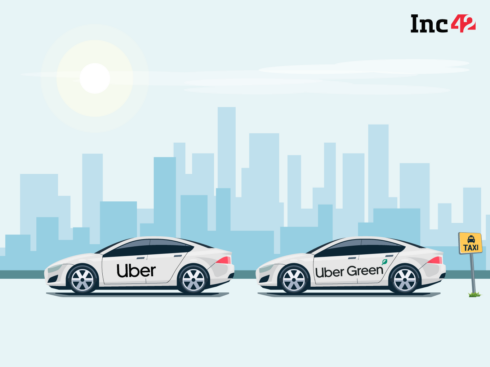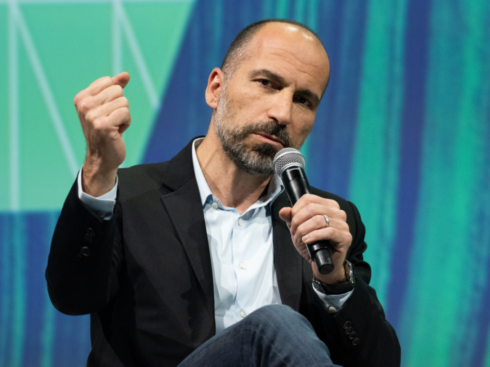SUMMARY
Logistics and fintech sector emerge as the fastest growing sector in the growth stage, backed by the regulatory push and market conditions
Adequate funding at the growth stage is one of the factors behind startups entering the unicorn club, especially in the Indian startup ecosystem
Reckless scaling up after growth stage can turn catastrophic in the long run as seen in many Indian startups
That startups have a high failure rate is common wisdom today. One way to assess the success probability of a new venture in any ecosystem is by measuring the concentration of unicorns to the total recorded count of funded startups. In the context of the Indian startup ecosystem, out of the total 2,773 funded startups recorded by DataLabs between the interval of 2014 to H1 2019, 31 startups have made it into the unicorns club.
So what creates unicorn-grade companies? Among the current unicorns in India, a common trait is that a majority of them had adequate capital available thanks to Series A and B funding rounds which are referred to as growth-stage rounds, as per DataLabs by Inc42’s definition. In addition to the availability of capital, the low incidence of reckless scaling-up is also a contributing factor to the success of unicorn startups.
Additionally, startups need to have enough momentum from external factors in the market for the sector they operate in to emerge as a fast-growing sector within the context of the growth stage ecosystem. This is well evident in the case of fintech, the proactive push by the government towards digitisation has played a vital role in the growth of this sector. The other sector that has seen a boom in logistics — primarily due to a surge in demand in allied sectors such as hyperlocal and ecommerce in the Indian context.
Logistics And Fintech: The Most Preferred Sectors In Growth Stage
In the context of the funding amount, the recorded growth rate between 2014 and 2018 for startups in the logistics sector is 226%, whereas for fintech startups this is 68%. Similarly, in the case of the number of funding deals logistics is 78% and fintech is 50%. Thereby, making these two sectors with the highest growth rate in funding amount and the number of funding deals at the growth stage.
Although the growth in the logistics sector at growth stage is higher than that of fintech in both the value of funding amount and count of funding deals. Fintech is leading the charts in terms of the value of funding amount with total funding worth $1.86 Bn funding between 2014 and 2018.
As the name suggests “growth stage” is a stage in the startup business life cycle were scaling up becomes a high priority. High investor confidence towards certain sectors in growth stage also indicates that from the investor’s perspective startups in these sectors have a higher potential of scaling up in relative to other sectors.
In the context of the Indian startup ecosystem, higher investor confidence towards logistics and fintech can be attributed to the certain favourable market conditions such as — increased internet and smartphone penetration, rising interest towards new technology and a shift in consumer purchasing behaviour from retail to online. These have fueled the demand for on-demand logistics as well as quicker payments and remittances. The government’s push has come from e-challans, electronic toll collection for logistics, as well as improved road and rail infrastructure. And in the case of fintech, the Unified Payments Interface (UPI) revolution has changed the face of Indian payments.
In the case of the fintech sector in India, the addressable market has been widened due to the network effect created on the consumer side by discounts and cashback along with the widespread awareness thanks to the forced demonetisation of INR 500 and INR 1,000 currency notes on November 2016.
This is best illustrated by the Google Search trends score for fintech which tracks the popularity of specific search term over a period of time. In this chart, when a search term crosses the 50 mark, it means it is starting to gain popularity, and a score close to 100 indicates high popularity. As seen “fintech” in Google searches in India is growing at an annual rate of 50% (2014 -2018), with the inflexion coming in 2017 (post-demonetisation) leading to a 3X surge in popularity.
Ecommerce had a big role to play for the rise of fintech, and the same can be said for logistics too. The rising investor confidence is directly proportional to the growing reach of ecommerce companies beyond urban areas, and the increase in the number of consumer services and hyperlocal delivery startups. The need for delivery fulfilment partners across India opened up new doors of opportunity logistics startups.
This rising investor confidence is best encapsulated by the two logistics startups — Delhivery (current valuation $1.6 Bn) and Blackbuck ($1.1 Bn valuation) — entering the unicorn club in 2019. As a result, logistics startups make up 10% of the total 31 unicorns in India as of H1 2019.
The dependency of logistics on ecommerce and hyperlocal consumer services is evident from the correlation of unique logistics startups funded on a quarterly basis to the unique count of startups in ecommerce and consumer services. This correlation is not insignificant, and it’s clearly evident how the rise in investor confidence in logistics startups is linked to the growth of ecommerce and consumer services sector in the context of the Indian startup ecosystem.
Reckless Scaling Impacts Sustainability
Innovation in both logistics and fintech startup sectors is crucial to the overall Indian economy, especially if India is to meet its ambitions of becoming an economy dominated by digital services and products. In fact, when you come down to the fundamentals, logistics and fintech streamline two of the most critical parts of an economy — the movement of money and goods. That’s what makes these two sectors so vital in a digital-first world.
But when there’s such a growth opportunity on offer, startups often get trapped by the scaling-up potential. While the availability of adequate capital in growth stage is a guarantee that the startup can scale up the operation, but often startups fall into the trap of scaling up recklessly. Some of the hallmarks of reckless scaling up are ignoring cash efficiencies, return on investments (ROI) and cashburn to acquire customers. These can turn out to be catastrophic.
One fine example of such reckless and delusional scaling-up is the infamous case of real estate tech startup Housing.com. Despite over $150 Mn in funding and backing from venture capital firms such as SoftBank, Nexus Ventures, Qualcomm Ventures and more, the startup failed to sustain their business widely due to splurging on creating a brand identity and spending to expand into newer cities without much thought.
As per media reports the company spent more than INR 50 Cr on marketing in a span of eight weeks. This resulted in an alleged 500% jump in user traffic, but despite that, the company failed to retain the users and generate any ROI. By ignoring ROI, the annual run rate (ARR) and cash efficiency, Housing.com became a high-profile failure. Aggressive hiring of employees at higher-than-market pay also contributed to the downfall of Housing.com. The boardroom drama centred around cofounder and the then CEO Rahul Yadav also didn’t help the company.
Such reckless scaling not only results in loss of capital but also impacts job security — Housing fired more than 600 employees — and destabilised the sector. Other startups have suffered a similar fate. So adequate growth stage funding has to be back by smart expansion and a data-backed scaling-up strategy.
If the reckless and delusional scaling after growth stage funding becomes a regular feature in the Indian startup ecosystem, then the culture of innovation and entrepreneurship in the Indian society would be replaced by job insecurity and economic instability in the long run.
DOWNLOAD THE FULL REPORT



























